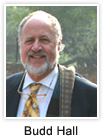 It has been my privilege to attend the Second Symposium on the Afrodescendants Movement and Latin American Studies organized by the Afro-Latin American Research Institute at the Hutchins Center of Harvard University and the University of Cartagena in Colombia held December 9 and 10 in Cartagena, Colombia. The organizers were Silvia Valero, U de Cartagena, Alejandro de la Fuente, Harvard and Alejandro Campos Garcia, Thompson Rivers University, Canada. The conference had expressed an interest in the work of our UNESCO Chair on community-university research partnerships and on the Confluence 2017 event being organized by Paulo Wangoola and the Mpambo Afrikan Multiversity that we are supporting in Jinja, Uganda in May of 2017.
It has been my privilege to attend the Second Symposium on the Afrodescendants Movement and Latin American Studies organized by the Afro-Latin American Research Institute at the Hutchins Center of Harvard University and the University of Cartagena in Colombia held December 9 and 10 in Cartagena, Colombia. The organizers were Silvia Valero, U de Cartagena, Alejandro de la Fuente, Harvard and Alejandro Campos Garcia, Thompson Rivers University, Canada. The conference had expressed an interest in the work of our UNESCO Chair on community-university research partnerships and on the Confluence 2017 event being organized by Paulo Wangoola and the Mpambo Afrikan Multiversity that we are supporting in Jinja, Uganda in May of 2017.
The Afrodescendants movement is a mature and impressive movement of Afrolatinos and their organisations and includes diasporic activists, academics, international organisations and political leaders from all over Latin America and the Caribbean. There are over 200 million Afrodescendents in the Americas. They have been working together for many years having gotten their initial push in Santiago, Chile in December 2000, at the Latin American preparatory event for the 2001 UN World Conference Against Racism that took place in Durban. The term Afrodescendents (Afrodescendientes) was coined in Santiago to refer to the millions of Latin Americans of African heritage. It is encouraging that even with the resistance of the dominant powers to the message of the Anti-Racist UN agenda, the opportunity for Afrodescendants to begin working together is impressive.
The Cartagena conference brought together 50 impressive movement leaders from most of the Latin American countries including some allies like myself from Canada and others from the US and England. Amongst the participants were some of the leading world scholars on the Latin American African disaspora, leaders of national and international human rights and racial justice organisations and networks, Afrofeminist scholar activists, young Afrodigital social economy activists, representatives of the Organisation of American States and the Interamerican development bank.
From a knowledge democracy perspective, the event was very exciting. There was widespread recognition of the importance of moving beyond the hegemonic discourse of White Western European knowledge to include knowledges of excluded black thought. There were many moments where the power of the arts to represent transformative knowledge was present. One example of the later (from the women participants) was the invitation to several of the leading men in the conference to take scarves and cover up objectionable sexualized paintings that were on the walls of the conference area. Another was the use of hip hop by Magia Lopez of Cuba, a founder of the duo OBSESION, a team that uses hip hop for community and social change purposes. Monica Carillo, head of a Peruvian Centre for studies and support of AfroPeruvians began with a powerful poem on being a Woman Black Panther.
There were presentations from many community groups, some of which were using the terms participatory research and the co-construction of knowledge to express their way of working. One example is the work of Edwin Alvarez of Honduras who is the Director of the School for Afrodescendent leaders in Human Rights. This school is based in communities, attracts students from most parts of Latin America for four month community-based courses. They learn a variety of skills in the community. The communities play a role in the selection of the students themselves. They support learning of participatory research and the co-construction of knowledge.
The movement is one of the most promising gatherings of its kinds that I know of. It is a space of intellectual exchange, of strategic debate, of partnership and alliance building. It has strong Afrofeminist and youth engagement and has involvement from older women and men who have been leading the struggle for justice and equality for Afrodescents in their countries and the continent for many years. It is a space of co-construction of vision and strategy.
For further information about the movement, please contact Alejandro Campos Garcia acamposgarcia@tru.ca




